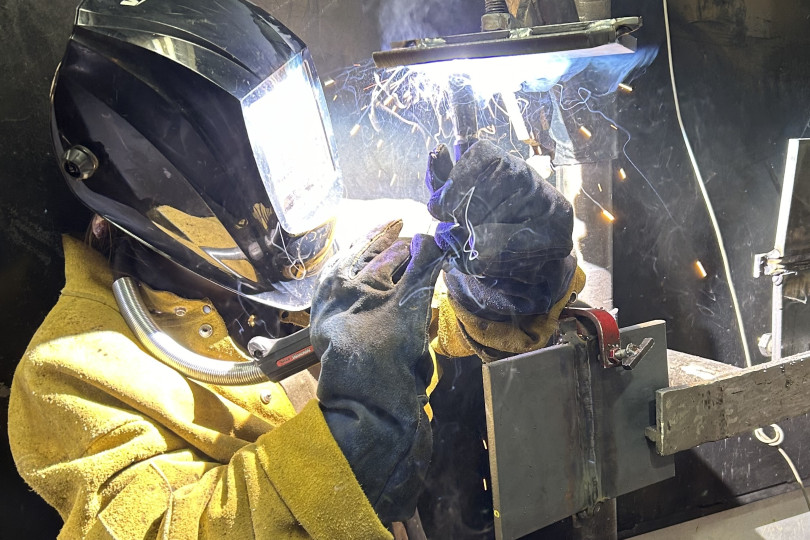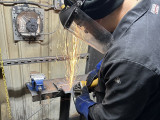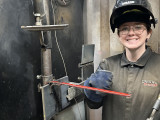Recruiting is one of the most important things for the survival of our craft. We’ve got to get people and we’ve got to spark interest in our organization.
It’s been nearly six years since the initial boot camp program kicked off in July of 2018, and the success of the program is evident. Dozens of local lodges have hosted the camps throughout the United States, completing 258,730 training hours in over 105 boot camps, teaching 1,244 students with an overall pass rate of 86%. In just the first two months of 2024, seven boot camps trained both new recruits and apprentices.
The Boilermaker training facility on the Tennessee Valley Authority grounds in Hartsville, Tennessee, runs boot camps year-round. Because of its central location—about an hour outside Nashville—the facility isn’t just for recruits and Boilermakers in the Southeast. It’s also easily accessible to those in the Great Lakes, Northeast and Western States.
The boot camp program has faced obstacles, according to National Director of Training Services Jeffrey Hughes. The COVID-19 pandemic caused early setbacks. People signing up for the boot camp then pulling a no-show when it convenes has also been a frustration. And Hughes said he’s noticed young people have a different work attitude than the generations that came before them.
“Not everyone wants to travel anymore or go into the trades like they used to,” Hughes said. “And parents aren’t kicking kids out of the house at 18 anymore. Opportunities are out there, but you’re only going to get out of it what you put into it.”
Because of hurdles encountered in reaching and retaining younger generations, Hughes, along with Director of Recruiting Services Monte Causey, are looking at different options to reach Gen Z and other young workers, as well as opportunities to bring in nonunion workers. But name recognition is another hurdle. When people hear “Boilermaker” they may not be aware of the scope of skills and variety of jobs members perform.
“We’ve always been a great kept secret,” Causey said.
He said members must put themselves in an environment to entice people to check out the Boilermaker craft—especially since other crafts are also trying to attract welders. Local ads, including TV spots, seem to work for recruiting on a local level.
“Pound the ground and make yourself known,” Causey said. “Make yourself known to the welding programs at the high schools. Find those guys working nonunion and inform them about the possibilities.”
He said touting union benefits including higher pay, retirement security and union job security can draw in more nonunion workers. And word-of-mouth recruiting to friends and family is also effective.
“Really, it’s just getting the word out and getting people to understand,” Causey said. “If you can build relationships with instructors, whether high school or community colleges, you’ll be the first person that instructor calls when he has people he thinks will fit into the union. You’ve got to put yourself in an environment to entice people to check out your craft. You’ve got the other crafts trying to get welders.”
Causey said the union is in “dire need of skilled people. Not just welders, riggers too. And we’re not the only one in that boat.”
He’s been to schools and finds every craft is also there in search of workers.
“Recruiting is one of the most important things for the survival of our craft,” Causey said. “We’ve got to get people, and we’ve got to spark interest in our organization.”
Hughes agreed. “Every member in the organization is a recruiter. It’s in the constitution that it’s everyone’s job to recruit.”








